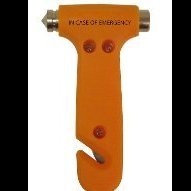Taxes for Americans employed by American companies
-
Recently Browsing 0 members
- No registered users viewing this page.
Announcements
-
Topics
-
Latest posts...
-
13
-
22
Harris Challenges Trump Over Debate Commitment, Accuses Him of Backpedaling
No, I think Trump would win but agree with the rest of your post except the last sentence. Trump would be frustrating as usual for those that seek an honest debate but it seems his growing base doesn't care much and easily shrugs it off as "normal" Trump. -
30
Thai beauty queen sparks online drama over airline seat
If all beauty queens have golden pussies, what chance do we all have? -
36
Unruly Passenger
I believe the first known case of this in humans. Was found to be in Wales Uk. -
30
Thai beauty queen sparks online drama over airline seat
It is nothing but 'Thai. Style', nothing wrong people, just keep walking. -
13
Trump to scared for debate with Harris
I heard her speech about 'going to the border' and her nonsense about 'the Ukraine is a country in Europe next to another country in Europe' Eloquent? More like mental illness. I'd prefer Hillary.- 1
-

-
20
Refusing to pay customs
3 years ago I sent a camera body to the US for repair via FedEx. When it came back, they sent it fedex. And so with Fedex or DHL, they made their stop at customs. Customs wanted about 6,000 THB for duty. The camera was 8 years old, and worth about that much. I mentioned that Fedex sent the dang thing. I told Fedex to send it back, I was not going to pay it. A few days later they sent an email suggesting I pay 4,000thb. I told them to send it back, I was not going to pay. A week later I got the camera body. I paid nothing. -
86
Did Donald J Trump fool the world?
Seems to be a few on here pretending that they are not upset that Trump wasn't shot. -
2
French Olympics - The Last Supper
Apparently was a shambles with the Olympic flag being hoisted upside down. -
6
Kamala Harris trolls Trump as he backs out of debate
Trump isn’t backing away from anything. He just said that he’ll wait to make arrangements with the Democrat’s official nominee. -
30
Thai beauty queen sparks online drama over airline seat
How did she earn the 400k baht for the ticket? -
6
Cult blamed for deadly killing rampage in Surat Thani
murder motive is difficult to differentiate among drugs, religion and mental illness nowadays. could be one, the other or all of the above -
30
Thai beauty queen sparks online drama over airline seat
I'd still gerfurgle it! I'm not too choosy. -
22
Thaksin Says He's Too Old to Run for PM Again at 75
not to mention as a convicted criminal he would not be eligible -
86
Did Donald J Trump fool the world?
So the guy didn't actually die from a bullet fired at Trump? Is that what you are saying? He was just an actor pretending to die?
-
.png.3b3332cc2256ad0edbc2fe9404feeef0.png)








Recommended Posts
Create an account or sign in to comment
You need to be a member in order to leave a comment
Create an account
Sign up for a new account in our community. It's easy!
Register a new accountSign in
Already have an account? Sign in here.
Sign In Now